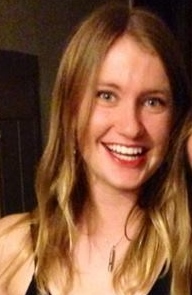M y name is Danielle Connor, and I like to move. Whether it’s going for a run at dawn, swimming in the lake, or slowly, but surely, increasing my number of pushups, I love the feeling that exercise and movement give me. This led to my decision to study Kinesiology at Penn State, going from suburban Philadelphia to one of the most well-known towns on the east coast. After receiving outstanding textbook and social knowledge from my professors in KINES, I combined my love for kids and movement and put myself on the path to graduate school in occupational therapy. This summer I’m interning at Easter Seals, a non-profit, nationwide health agency that helps children and adults alike attain greater independence. The State College facility I’m with for the summer is a pre-school that integrates kids with disabilities (motor, speech, behavioral) with what’s called “typical” children – those who are normally developing. I’m working in a room with 3 & 4 year olds, so there’s learning every day both for me and the kids.
y name is Danielle Connor, and I like to move. Whether it’s going for a run at dawn, swimming in the lake, or slowly, but surely, increasing my number of pushups, I love the feeling that exercise and movement give me. This led to my decision to study Kinesiology at Penn State, going from suburban Philadelphia to one of the most well-known towns on the east coast. After receiving outstanding textbook and social knowledge from my professors in KINES, I combined my love for kids and movement and put myself on the path to graduate school in occupational therapy. This summer I’m interning at Easter Seals, a non-profit, nationwide health agency that helps children and adults alike attain greater independence. The State College facility I’m with for the summer is a pre-school that integrates kids with disabilities (motor, speech, behavioral) with what’s called “typical” children – those who are normally developing. I’m working in a room with 3 & 4 year olds, so there’s learning every day both for me and the kids.
Day 1: “I have a gun.” Not two minutes into playing with my first group of kids comes this statement from a little boy, to which I respond by looking at the classroom’s lead teacher for some help. “No thank you. We don’t talk about that at school,” she replies. Interacting with the kids was my number one priority when I began, so I’ve been listening to better learn the way the teachers talk to them. It’s easy to accomplish with the more typically developing children, but it sometimes takes a little more thought for those with special needs.
Half of the kids in the classroom I work in have special needs or behavioral disorders, or they’ve received the overarching term “developmental delay,” something given to a child who is socially, physically or cognitively behind, but has not yet received a diagnosis. The other half of the kids are typically developing, and they set a great example of peer interaction for those that have difficulty with it. A child with Down’s Syndrome, for example, might not know how to play a game of Duck, Duck, Goose, so by watching what others his age do, how they cheer and react during “the chase” is important. They’re surrounded by one on one contact with parents, therapists and adults, but they don’t often click with others their age.
Easter Seals has an individualized education plan (IEP) for each child, and often letting them go test their social skills on the playground or at lunch is important – they don’t have that safe adult that understands their disorder and gives them special attention. It seemed sad to me sometimes when they ended up playing alone, but they’re trying every day to work on these skills that they’ll use for the rest of their lives.